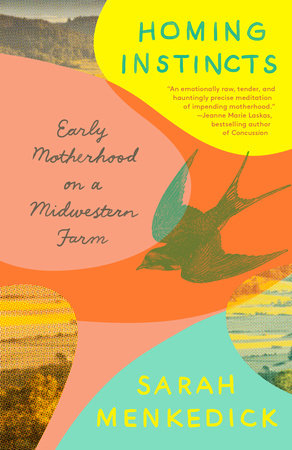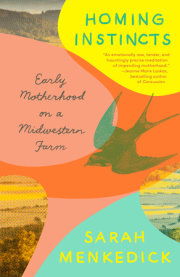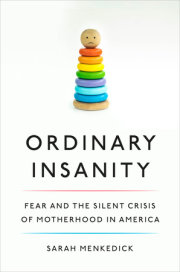HOMING INSTINCTS There are five types of navigation, five means to find your way home: topographic, celestial, magnetic, olfactory, and true.
Topographic is used by the lowest forms of life, your mollusks and your limpets. Celestial is the rarest, wielded by some species of birds, some species of seals, certain humans, and the dung beetle. Many creatures finagle a combination: magnetic for broad route finding to general points, then olfactory for specifics.
True navigation can only be engaged in familiar areas, where one can rely on landmarks: roads, rivers, mountains, buttes, fields, forests, the abandoned house, the one-room Airport Inn, Stauf’s Coffee, the water tower, the corner grocery, the place where memory has imprinted like the fuchsia or mournful blue on stained glass.
•••
In my twenties, I flung myself into the world. I leapfrogged across continents, hungering for experience and proof of my own wildness. I taught English to recalcitrant teenagers on Réunion Island, picked grapes in France, witnessed a revolution in Mexico. To be aware was to be outside, under Mongolian skies and in bantam seaside bars, far-flung places where every conversation and scent prickled with exceptionality.
In my early thirties, I cling to this paradigm: experience lies on the road, in adventuring beyond oneself and beyond the ordinary. Then, in the autumn of 2013, I move into a tiny nineteenth-century cabin on my parents’ Ohio farm, and my life flips outside in.
It is a chilly October day. In the morning, from the cabin porch, I watch the slow-motion glitter of gold maple leaves adrift in the churchly woods. Being here, I keep attempting to assure myself, is not so different from traveling: my latest adventure is simply a self-styled writer’s residency in rural southeastern Ohio, where I’ll learn to plant flowers and spot eagles and herd the chickens back into the coop.
I’ve recently graduated from the MFA program at the University of Pittsburgh, which entailed three long years in the United States. Throughout most of the program, my husband, Jorge, and I longed to leave, perpetually asking ourselves,
Where next, where next, where next. But the September after my graduation, when we move to the farm, I am surprised to no longer find a ticker tape of proximate destinations—
Singapore or Russia or Qatar or Peru—running through my head. It has been replaced by stillness, a sense of suspension.
I go running one morning past Seneca Lake—herons lifting their reedy legs in slow motion, pines swaying against the pale sky—and feel not the rocketing thrill of joy but a disarming tranquility. I have always been a person who operates in extremes, ecstasy or brooding discontent, and who sees calm as complacency or blunted awareness. But for a minute, descending one of the tummy-twister hills that undulate around the shore, I see all the ups and downs of the past several years as just that: mere ups and downs. I am suspicious of their swift barometric shifts, and instead appreciative of steadiness. I have begun to sense that living always in search of a new triumph or adventure, spending each morning run fantasizing about the moment when I’ll accept the award or board the flight to Singapore or say
Well, Terry, thanks so much for having me, means living in perpetual, haphazard evasion of the ordinary. The reality is that postpublication or postgraduation or postarrival in the Indonesian backcountry is composed of the same arrangement of sunrise to sunset, coffee to beer, and back again. The quickly familiar quotidian starts to chafe, and I’m once again lusting after the next peak.
Running that morning I think,
Perhaps steadiness is not capitulating but transcending. Cows; crows; a tilting hand-painted sign pointing right and reading corn: all around me Ohio embodies the tame middle. The heartland. Neither mountain nor ocean nor brimming metropolis: cheeseburger soup at the Wooden Wheel and Queen Anne’s lace and long-winded neighbors who call Jorge “George.”
That September I write in the mornings and dig up weeds in the afternoons and for the first time in a decade I do not think about the future. I do not want to plan another trip. I do not want to grab at opportunity but simply to be where I am, which, in a twist I never would have imagined, is this modest patch of the Midwest where I grew up.
Amid this strange new ease, Jorge and I say, “Well, let’s see what happens.” Meaning,
We’ll give having a baby a go, and if it works, it works, and if not, we’ll continue with our beers and Boggle in the long summer evenings. It is a decision that feels at the time like driving into Columbus to watch my niece’s softball game: nice, comfortable, maybe a bit more humdrum and domestic than we’d like to envision ourselves, but important in its way and part of an essential and not-quite-nameable process of growing up.
It is night by the time Jorge returns with the test. My family is having a bonfire in the apple orchard. Meg and Dad are sipping beers, telling stories, their faces aglow. Dad’s beard, once a brilliant ginger, has gone white, and Meg’s hair is silvery in the moonlight, but both look younger than their respective decades (his sixties, her fifties). They are fit and energetic from farmwork, home cooking, poetry in the mornings, horseback rides in the afternoons: a vigorous country existence they’d dreamed of since they first met nearly thirty years ago. They bought these forty acres in 2002 and have spent the past decade making them a home; they built the horse barn down the slope from the orchard, the house on the rise across the ravine, the dog run, the chicken coop, the tractor shed, the loft in the old red barn. They laid gravel; they fenced and dug and seeded and tended a garden. They carved the bonfire pit, planted wildflowers, set rocking chairs on the cabin porch, mowed the pastures, hung a wooden swing deep in a grove of maple, unchoked trees from the clutch of bittersweet, set hand-hewn birdhouses on the posts of the horse fence. This is their new life together after decades of raising children in Columbus; it is their shared work, and it has smoothed and enlivened them like a river brightens stones.
When Jorge and I first moved in, Dad was worried about boundaries, and in his methodical research-scientist way drew up a list of rules and conditions we’d all abide by—quiet time from 1:00 to 4:00 p.m., shared chores and duties, and dinner approximately three times a week but not every night. (“We have a little flexibility here,” he explained, with trademark Dad attention to detail, going on to suggest that maybe we’ll eat together Tuesday, but not Wednesday; Friday, but not Saturday; and so on, until Jorge and I nod that yes, we’ve got it). This Dad contract went out the window early the next afternoon when Dad popped up around 2:00 p.m. to see if Jorge wanted to go fishing and was pretty much wholly forgotten from that point on. We end up in a natural rhythm, coinciding in the space between house and cabin, by the garden or chicken coop; calling one another up when we’ve made stew; or—in Dad’s case—sauntering up in his distinct Dad way looking for a buddy to help saw wood or talk turkey hunting. “Whoo boy,” he begins, and he and Jorge sit on the front porch like a pair of old-timers, squinting at the sky, muck boots splayed before them, missing only the overalls.
I am conspicuously not drinking, conspicuously quiet. The Milky Way is out, a gossamer river poured across the black country sky. There are coyotes howling, and the echoes of owls sounding down the valley, but all of this is static as I hurry single-mindedly through the pastures toward the cabin.
Jorge and I brush our teeth while we wait. A clock blinks on the test screen. It appears and disappears:
Wait, wait, wait. My heart gallops in that small yellow bathroom, though I don’t really think it possible. I spit, rinse, and look back.
“Oh my God,” I say. “Oh my God. Oh, my God.” I mean it literally. It is not my usual easy expression of incredulity or sarcasm. I am actually, in that moment, marveling at some sort of higher power. I am clutching my stomach. I am bending over. I am thinking,
I am actually going to do this we are actually going to do this. At first it seems akin to the feeling I got the day I was offered a job in Beijing. I was sitting in front of Oaxaca’s Santo Domingo Church when the university called and said I had the position teaching composition, and I thought,
We’re going to China. It is like this and yet, I quickly understand, not like this at all. It is not exterior but interior: a feeling in my gut, slung taut from hip bone to hip bone, of transformation. It is not so much a sense of being in control as of being taken over by a much greater, daunting, awesome force.
That night Jorge puts his hand on my stomach, and we whisper about money, about names, about what it might be like, about the potential due date. I barely sleep, and in the morning I watch the blue light of early fall rise over the pastures. My body and mind are filled and fused with this secret, this knowledge, and I can think of nothing else. I am in awe that after all this time of wondering, fantasizing, vacillating, of swirling like a leaf in a whirlpool around the questions of home and children and change, suddenly a decision has been made, a physical decision with a heartbeat that now thunders at the core of my life.
I spend the first two weeks like this, unable to write, unable to think, unable to do anything but feel that tingly marvel of news. It is like being in a luminous tunnel, bedazzlement and hypnotic hum, free of time and space. And then I fall out the other side of it, and the architecture of my life collapses.
Copyright © 2017 by Sarah Menkedick. All rights reserved. No part of this excerpt may be reproduced or reprinted without permission in writing from the publisher.






